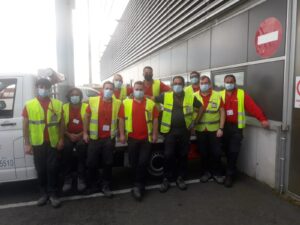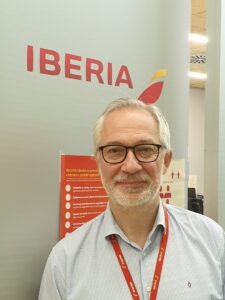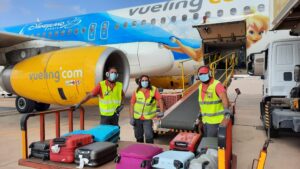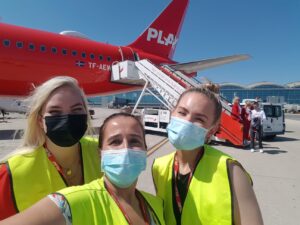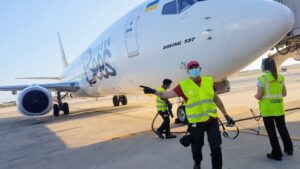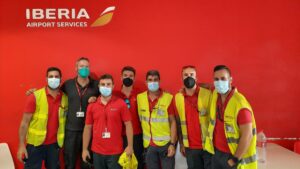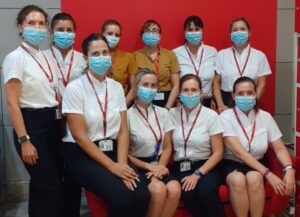Santiago de Compostela airport opened in 1932 and a new terminal was built in 2011. According to a recent article in El Correo Gallego, SCQ Rosalía de Castro airport, more popularly known as Lavacolla airport, is Galicia’s most important airport in terms of number of connections and passengers and occupies slot 16 in the ranking of Spanish airports. Last August
Iberia Airport Services (IBAS) currently provides handling services for five airlines (Vueling, Iberia Express, Air Nostrum, Privilege Style and Aer Lingus) with international destinations like London Gatwick, Paris Orly, Amsterdam, Brussels and Zurich.
In the 1980/90s Iberia operated summer flights to MEX and even JFK with a B-747 aircraft, offering connections to the Galician emigrants resident in those two cities. Pope John Paul II and Prince Naruhito are just two of the celebrities who have visited this city that has always been serviced by IBAS.
At this airport we have a versatile workforce (between 56 and 76 employees, depending on the season) able to meet any requirement the airlines call on us to handle. Santiago airport is open 24/7 and although usually there are no night flights, an Iberia Airport Services team is there making preparations for the following day’s flights as well as being on hand in case any flights are diverted from other airports.
Antonio Ruiz Lorenzo is the manager of Santiago de Compostela and Vigo airports. In his 37 years at Iberia, his knowledge and experience of passengers, ticket sales and technical operations have taken him all over Spain, from Málaga where he started out, to station manager in Melilla and Menorca, then on to Seville and finally to Santiago, where he has been in post since 2015. Antonio tells us that “Galicia’s climate has made us “experts” in managing diversions of flights with speed and efficiency. Santiago is the alternative airport to A Coruña and Vigo, and thanks to the communication between the Iberia Airport Services teams at all three stations we try to anticipate incidents and offer solutions to passengers in the shortest possible time.”
María Teresa Méndez Paz, who works at Santiago de Compostela airport, says she does a bit of everything: “One day I’m coordinating, the next drawing up a flight’s load sheet, another day I’m doing check-in and boarding… at small airports we have to be versatile. This is an airport that receives a lot of pilgrims because of the Way of Saint James, so you often find passengers travelling back to their places of origin with their “pilgrim’s staff” or bike, which are very common items of luggage for us.”
Juan Miguel Ferreira, head of airports at Iberia Express, tells us in this video about the operational excellence of the IBAS team at SCQ and its empathy when it comes to minimising the impact of incidents for their customers, who after all are our customers as well. Meanwhile, Antonio points out the advantages of working with a team like the one at Iberia Express.
